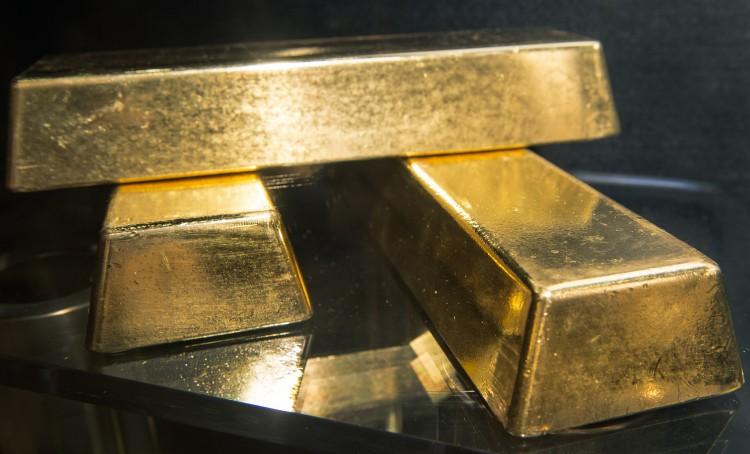In the controversy over its gold reserves, Germany has shifted gears all of a sudden. According to reports by the German media, the country’s central bank plans to repatriate gold stored in New York and Paris.
According to German financial daily Handelsblatt, the German central bank (Bundesbank) has developed a plan to the change geographical distribution of its 3,396 tons of official gold reserves, second only to the hoard of the United States.
“The plan, to be announced [Jan. 16] will increase storage at home, withdraw some gold from New York and everything stored in Paris,” writes Handelsblatt.
If the reports are true, it would be a huge about face from a decadelong strategy to store most of German gold reserves abroad.
Germany Trusted Fed for Decades
Starting with no reserves at all after World War II, Germany accumulated a hoard of 4,034 tons by 1969, losing some in the difficult decade of the 1970s. The Bundesbank now officially owns 3,396 tons of gold, 45 percent of which is stored in New York with the Federal Reserve and 11 percent in Paris. Only 31 percent is currency stored in Frankfurt, Germany.
Germany accumulated the reserves abroad because it was more convenient to settle trade imbalances at major gold centers under the Bretton Woods exchange rate system. The gold was also safer from a Soviet invasion being stored in New York, Paris, and London compared to Frankfurt.
The trust the Bundesbank had in the New York Fed was confirmed in a speech by Bundesbank official Andreas Dobret given in New York last November: “Throughout these sixty years, we have never encountered the slightest problem, let alone had any doubts concerning the credibility of the Fed. ... The Bundesbank will remain the Fed’s trusted partner in future, and we will continue to take advantage of the Fed’s services by storing some of our currency reserves as gold in New York,” he said.
Euro Crisis Might Have Caused Change in Policy
For years, gold and where it was stored wasn’t a concern for policymakers at home or abroad. As long as the economy was soaring and currencies were stable the ultimate safe haven currency was in low demand. The financial crisis of 2008 and the euro crisis starting in 2010 may have changed this.
In fact, the speech given by Dobret was given to counter demands by the government oversight body “Bundesrechnungshof” to have all of the German gold reserves assayed and validated. But even the Bundesrechnungshof, let alone the Bundesbank, weren’t speaking of repatriation then.
With respect what the Bundesbank hopes to achieve with this change in policy, one can only speculate. It is certain that having gold at home is more secure than having it abroad. But for what use? Gold is seen even by central bankers as the ultimate safe haven currency. “It’s … an escape from what is perceived to be a fiat money system, paper money, that seems to be deteriorating,” said former Fed Chairman Alan Greenspan in an interview last August.
It is of little value when times are good, but if you have a full-blown currency crisis on your hands, which is the case in Europe, you might need some if events take a turn for the worse. Germany will want to reassure itself that it has most of its eggs in one basket should the euro split up. This is why the report to pull all of its gold from vaults in Paris, leaving some in London and New York carries special significance.
At the moment Germany shares the euro currency with France, but not England or the United States. Should the euro break up, solid gold backing for a new currency would be essential if Germany moves back to the Deutsche Mark.
Implications Far Reaching
Germany might have seen a quiet moment in the euro crisis as a good opportunity to break this news, which is potentially troubling.
For years, the dealings between Western central banks have been carried by consensus and trust. In fact, the close cooperation between the European Central Bank and the Federal Reserve during the financial crisis and the European sovereign debt crisis prevented a complete meltdown of the system.
The decision to pull gold stored abroad from the New York Fed and Paris indicates a certain amount of mistrust, as legendary investor Bill Gross of PIMCO states in his Twitter account: “Report claims Germany moving gold from NY/Paris back to Frankfurt. Central banks don’t trust each other?”
The Epoch Times publishes in 35 countries and in 21 languages. Subscribe to our e-newsletter.







